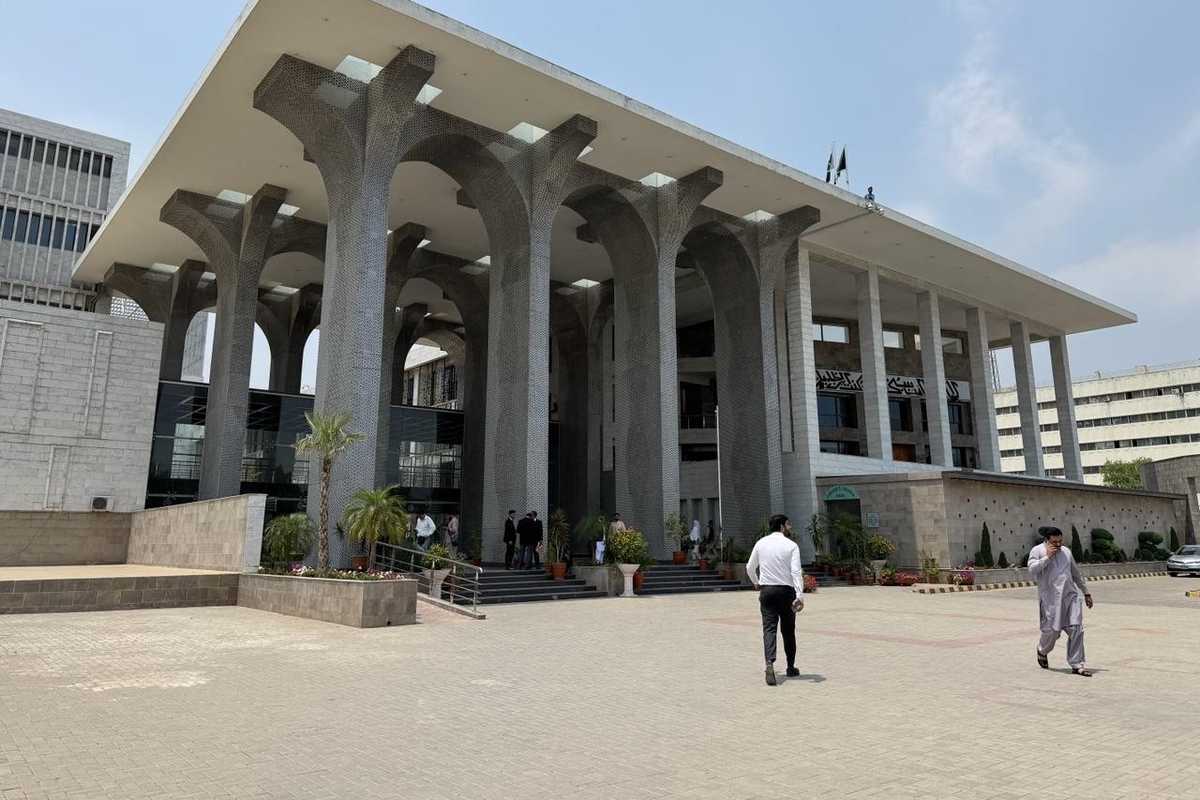Pakistan court suspends order calling for probe into misuse of blasphemy law
Islamabad High Court issued notices to all concerned and will decide the plea’s maintainability after hearing their statements, as the suspension remains interim
Ali Hamza
Correspondent
Ali; a journalist with 3 years of experience, working in Newspaper. Worked in Field, covered Big Legal Constitutional and Political Events in Pakistan since 2022. Graduate of DePaul University, Chicago.

A Pakistani court has temporarily suspended an earlier ruling that directed the federal government to form a commission to investigate claims of systemic misuse of the country’s blasphemy laws.
The now-paused judgment had alleged that a network of individuals and officials manipulated online content to entrap people in false blasphemy cases.
The Islamabad High Court (IHC) issued the suspension on Thursday in response to a set of intra-court appeals challenging the earlier ruling delivered by Justice Sardar Ejaz Ishaq Khan of the IHC. In that ruling, Justice Khan had ordered the government to establish the investigative commission within one month.
A two-member IHC bench comprising Justice Khadim Hussain Soomro and Justice Azam Khan presided over the appeals. During the hearing, the bench issued notices to all parties concerned and reserved its judgment on whether the appeals are legally maintainable.
Senior lawyer Kamran Murtaza, representing appellant Rao Abdul Raheem and others, argued that the original petitioners were not given a fair opportunity to present their case in the earlier proceedings. He pointed out that over 400 related cases exist—many of which, he argued, fall outside the jurisdiction of the IHC.
Murtaza further questioned the legal authority to form such a commission, asserting that only the federal government has the power to do so. He also claimed that while the case appeared to have been concluded, the written order later suggested it remained pending.
Another key argument presented was on the maintainability of the original petition, which, according to Murtaza, was filed by someone not directly affected by the issue -- potentially a relative -- and therefore should not qualify for consideration under writ jurisdiction.
He also criticized the language and tone of the single bench’s order, claiming it conveyed a sense of judicial authority that exceeded even that of the Supreme Court.
The court concluded the preliminary hearing, clarifying that the current suspension is interim. A final decision will follow after all parties submit their responses and present arguments. Lawyers were advised to obtain copies of the original court order from the court reader.
Meanwhile, notices have been sent to the respondents, who will be required to submit their statements at the next hearing. A detailed verdict in the case is still awaited.
Background
The suspended ruling originated from a case alleging a coordinated scheme involving Federal Investigation Agency (FIA) officials and private individuals to entrap citizens using doctored or misrepresented online content.
Central to the case was a woman operating under the alias “Iman,” later identified as Komal Ismail. According to police records, she contacted multiple individuals online before filing blasphemy complaints against them.
Forensic data linked Ismail to Rao Abdul Raheem -- a controversial figure described in an intelligence report as a potential ringleader. Despite these links, authorities have yet to launch a serious investigation into either the complainants or the origin of the digital evidence used in the cases.
The court had flagged repeated misuse of Facebook accounts that had already been confiscated by the FIA. Alarmingly, some of these accounts were later used again -- while still under official custody -- to file fresh blasphemy cases.
In several instances, mobile phones submitted as evidence had previously been seized by law enforcement, raising serious concerns about possible fabrication, evidence tampering, or gross procedural mismanagement.







Comments
See what people are discussing